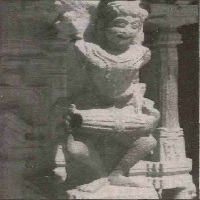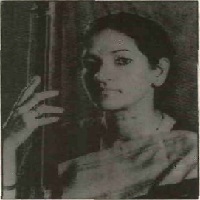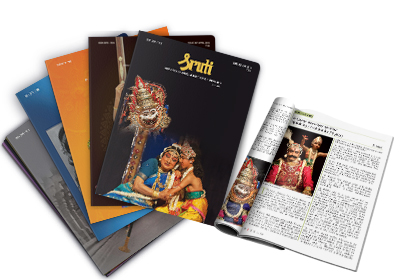News & Notes

A two-day festival of music, dance and drama, held 24-25 March, helped to recall the cultural efflorescence of Hampi. Hampi was the capital of the Vijayanagara empire during the 14th century. It came to be known as one of the great imperial cities of the medieval times. When the empire fell to marauding Muslims in 1565, the city was virtually reduced to a rubble. What remained on ground has since come to be known as the Hampi ruins. Archaeological excavations are continuing to reveal the architectural, sculptural and cultural facets of the great accomplishments of the Vijayanagara empire. Exquisite sculptures in the temples still standing amidst the ruins offer evidence of the fact that music and dance thrived in the imperial city.
Special Feature

Vijayashree (Viji) Subramaniam, who passed away in February in California,(Sruti 126), was a talented musician, as well as an inspiring partner of her husband Dr. L. Subramaniam in many of his musical projects. Daughter of Hindustani vocalist Lakshmi Shankar and Rajendra Shankar, Viji revealed promise of her talent when she was still a child. She learnt music initially from her mother but later developed on her own since, unlike her mother, she was mostly interested in light classical music. She won the first prize in one of the annual music competitions conducted by All India Radio and it was the first of many prizes she won. Viji recorded extensively for radio and television programmes. A turning point in her life was when she joined her uncle Ravi Shankar and her mother in a concert tour sponsored by George Harrison of the Beatles; she was featured as a vocalist. It was during this tour that she met L. Subramaniam. They were married in 1976.
Special Feature
Bakthi and Music
Indian art or classical music is raga music. The concept of the raga is unique to Indian music and it is this which really sets Indian music apart from other musics in the world. Dr. Ashok D. Ranade, the Bombay based scholar and musicologist, has suggested a five-fold classification of music, as follows: primitive; folk; devotional; art; and popular (see Sruti 104 for details). There is a distinct difference between the purposes of devotional music and art music. Concert music is art music. The performing musician has the ego of an artist and he or she is expected to bring to the performance his or her own vision of the art. Concert music may include bhakti-oriented texts, but the approach to the music is different.


